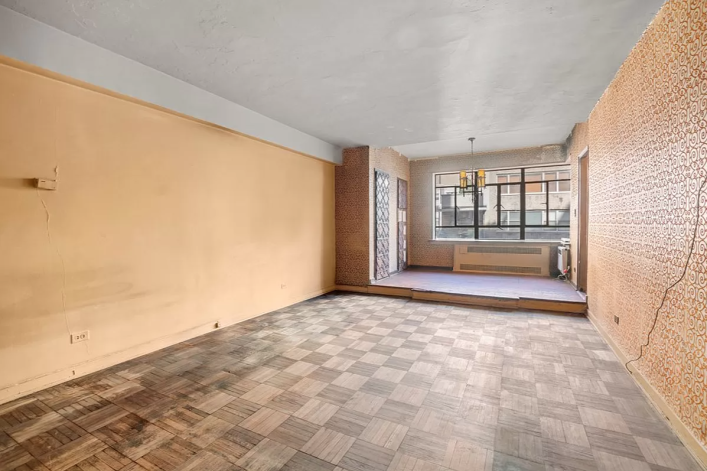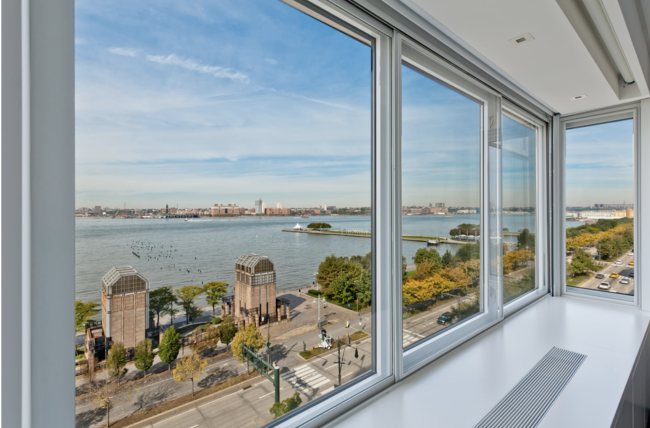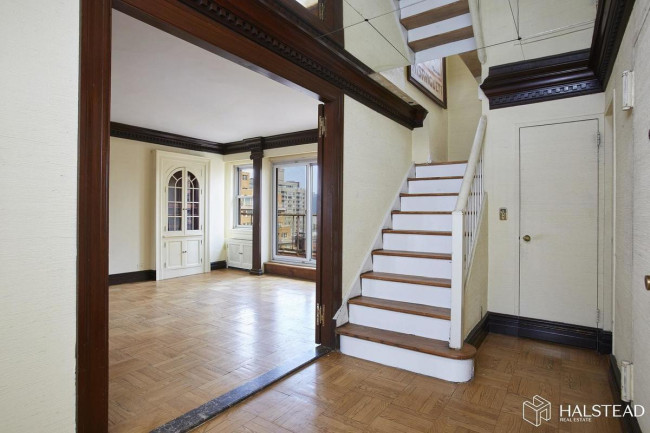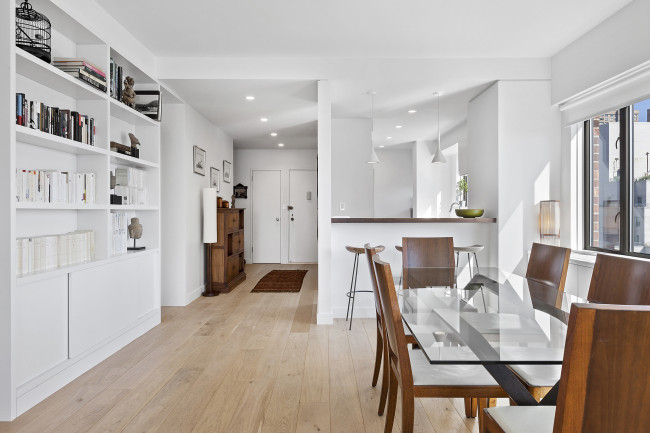How to tell if a fixer-upper makes sense for you

You need your eyes wide open when you consider a fixer upper like this one at 215 East 79th St., on the Upper East Side.
Supply chain issues, labor shortages, and higher material costs have made New York City buyers even more reluctant to take a chance on places that need a major renovation. But for those in search of a deal, a fixer upper still presents an opportunity. It all depends on whether you can stomach a renovation and whether the price reflects what it will cost you in time and money to fix it up.
So when you're considering buying a fixer-upper, how do you weigh all the headaches against the pleasure you'll take in living in a place you've made all your own—and the potential gains you'll make when you sell?
Brick asked brokers what worked for their clients who tackled a fixer upper. Their experiences can help you determine if a buying a place that needs major work is right for you in 2022.
The discount makes sense
If you're open to the work, you need to make sure there's enough of a discount built in to the cost of the apartment to make the project worthwhile.
"There needs to be an adequate reward for the time, money, and stress that the process entails," says Seth Levin, a broker at Keller Williams. Ask yourself: When the work's done will your equity have increased?
Levin says right now there is huge premium for renovated properties, so if you're willing to undertake a major project you'll get "properties that are less competitive and reap huge rewards if you're properly advised on where the price should be," he says.
You calculated the real budget and timeline
You may have the appetite for a fixer upper, but do you have the budget? It’s always more work than you expect and costs are usually higher too.
"New York City’s condos and co-ops and the hoops required to jump through make it a longer and more complicated process than just about anywhere else in the country," Levin says. If you're renovated elsewhere, make sure you fully understand how the process is different in New York.
"All renovation timelines are at minimum doubling—and I mean in addition to the normal doubling of time we do with contractors to manage expectations," he says.
According to the National Association of Home Builders, residential construction costs are up 21 percent year over year. Jay points out renovation costs can't be rolled into a mortgage and will need to be paid out of pocket. "A bank will not finance the construction costs," she says.
You have somewhere else to live
Natalee Bloom, a broker at Living New York, just went into contract on a property on Central Park West that needs a gut renovation. She says the best advice is to add two months to whatever the contractor tells you will be the timeline. (Or as Letendre suggests, double the timeline). With that in mind, are you prepared to live in the apartment under some sort of renovation for several months or do you have the funds and the ability to live elsewhere while the work takes place.
"That cost should be factored into renovation costs too," Letendre says.
If your NYC renovation involves any plumbing, pointing (refinishing brick work), electrical work, home extensions, or swimming pools, you'll need a permit (permits are not required for cosmetic work such as painting, plastering, flooring, replacing fixtures or a sink). And if you live in an apartment building, the condo or co-op board will be watching closely. A good renovation partner like Bolster can help you navigate landmarks, the DOB, and your co-op. Learn more >>
You will find supply chain workarounds
Supply chain issues are expected to last well into 2023—are you willing to find workarounds? This could mean using upcycled materials or shopping the clearance section for appliances. Shopping local, browsing pre-used furniture, or simply being prepared to compromise—if you're comfortable with these strategies to get the renovation done with fewer delays you may be the right person to forge ahead with a renovation this year.
"If you are doing cosmetic work and using stock items that are easily purchased at a big box home improvement store, you should be able to make it work," says Christopher Totaro, an agent at Coldwell Banker Warburg. However, if you don't have the budget or the bandwidth for both, a fixer upper should be a hard pass, he says.
You have patience for renovating
Does your heart sink when you see peeling wallpaper, exposed wires, and signs of damp—a fixer upper may not be your best option.
"Some clients don’t have the patience and it becomes a source of resentment rather than excitement," Bloom says.
But if you understand the process, and have the perseverance and vision needed to transform a disaster into a diamond, she says it's a good time to get a deal on a fixer upper. She recently worked with a couple—a contractor and a gallery owner—who she says were the perfect combo for the project they took on: A one bedroom on the Upper East Side that hadn't been touched for 20 years. There were holes in the floors and the apartment had no kitchen. They considered every scenario—like what would happen if asbestos was found or if an appliance was unavailable and the only other option cost an additional $5,000.
"He had experience in the industry, he was more patient and kept his eye on the prize," Bloom says. The renovation took four months.
You don't get decision fatigue
As you renovate you'll need to to pick out larger items like vanities and flooring as well as smaller items like door hinges and handles. Bloom says the best client to purchase a fixer upper is one who knows very clearly what they want.
"They want the fixtures a certain way and the pass through kitchen to have 'these cabinets, not those,'” she says. You need to know what you want down to the very smallest detail and not be overwhelmed by decision fatigue.
You can shop around for a contractor
It's important to work with the right contractor on a gut renovation. Your broker can give you a referral but it's worth getting multiple quotes. "Make sure they are available to work in your timeframe," Frank says.
Steven Gottlieb, an agent at Coldwell Banker Warburg, warns that due to labor shortages, it's possible you may not get the contractor you want. Going with your second choice could add time to the project.
Talk to several contractors to make sure they understand the scope of the work that is needed and are giving you an accurate quote. Jay suggests bringing a contractor to the apartment before you buy—so they can advise on what can be done and estimate the cost and timeline for the renovation. Make sure they are taking into consideration factors like appliance delivery dates, Department of Building permits, installation costs, and building requirements.
You Might Also Like



























